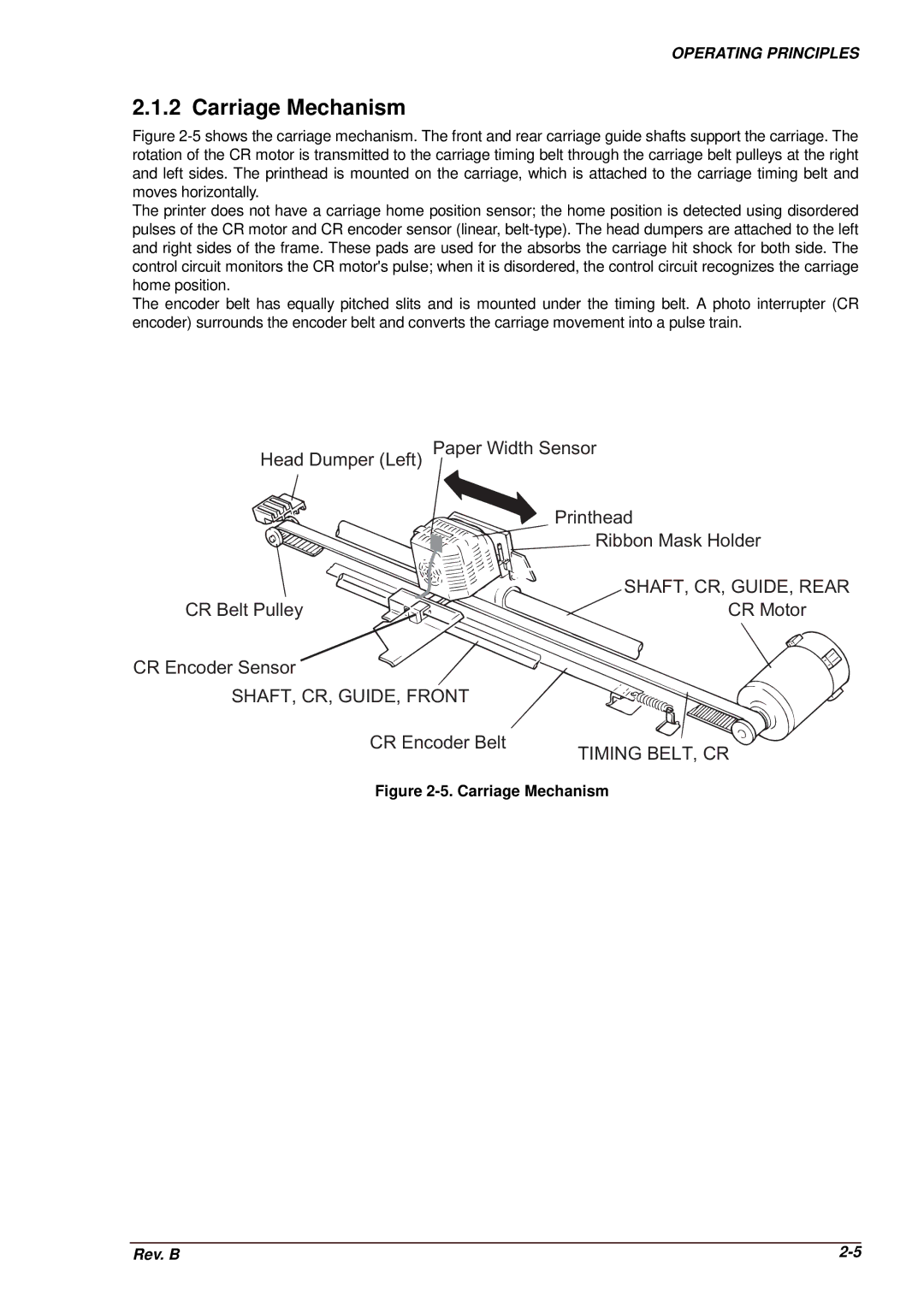
OPERATING PRINCIPLES
2.1.2 Carriage Mechanism
Figure 2-5 shows the carriage mechanism. The front and rear carriage guide shafts support the carriage. The rotation of the CR motor is transmitted to the carriage timing belt through the carriage belt pulleys at the right and left sides. The printhead is mounted on the carriage, which is attached to the carriage timing belt and moves horizontally.
The printer does not have a carriage home position sensor; the home position is detected using disordered pulses of the CR motor and CR encoder sensor (linear, belt-type). The head dumpers are attached to the left and right sides of the frame. These pads are used for the absorbs the carriage hit shock for both side. The control circuit monitors the CR motor's pulse; when it is disordered, the control circuit recognizes the carriage home position.
The encoder belt has equally pitched slits and is mounted under the timing belt. A photo interrupter (CR encoder) surrounds the encoder belt and converts the carriage movement into a pulse train.
P a p e r H e a d D u m p e r
Wid t h S e n s o r ( L e f t )
| P r in t h e a d |
|
| R ib b o n M a s k | |
| S H A F T , | C R , |
C R B e lt P u lle y | C R | M o t o |
C R E n c o d e r S e n s o r |
| |
S H A F T , C R , G U I D E , F R O N T | ||
C R E n c o d e r B e lt |
| |
| T I M I N G B E L T , | |
Figure |
| |
Rev. B |
